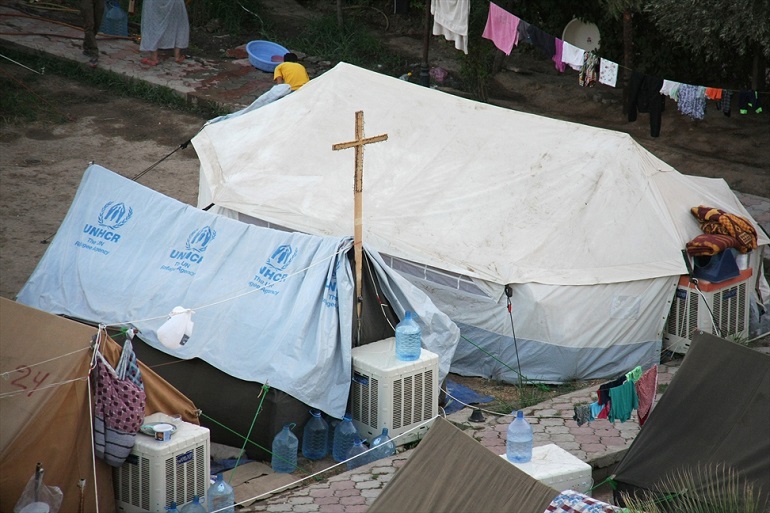
The United States, under President Trump, has admitted 40 per cent fewer Christian refugees in the past year, US broadcaster NBC News has reported.
As the Trump administration has implemented stricter policies on immigration and refugees, almost 11,000 Christians looking for a safe place to go were reportedly refused entry to the US.
Christians from the Middle East who have been living in the US for years have also been affected, with dozens of Iraqi Christians in detention centres and facing the possibility of deportation.
“[This] suggests that the president has no real interest in religious persecution or the tenets of religious freedom,” Mary Giovagnoli, director of Refugee Council USA, told NBC.
Last year Pew Research Center reported that the net number of Christian arrivals to the US was shrinking, although Christians were accounting for a steadily growing share of the arrivals.
US Vice-President Mike Pence said in May last year that the Trump administration was committed “to defend[ing] Christians, and those of all faiths, whose freedom of religion is threatened”, and assured them that the US “would stand with them”.
Minorities ‘neglected’
Meanwhile, figures released in the UK showed that during the first quarter of 2018, a “very low number of religious minority Syrians were recommended for resettlement by the UNHCR and resettled by the UK government”, noted human rights activist Ewelina Ochab in an article for Forbes.
Stating that numbers have been steadily decreasing in recent years, she said “it may be concluded that the neglect of the minorities is a long-standing policy”.
According to Ochab, this shows the UK government’s failure “to recognise the atrocities perpetrated against [minority] groups [such as Christians] as genocide”.
“If a state does not recognise such genocide, the state will treat refugees for resettlement ‘alike’, rather than taking proactive steps to ensure that the remnants of the persecuted minority group survive,” she said.
International day for victims
British peer Lord Alton and the EU’s Special Envoy for the promotion of freedom of religious or belief, Jan Figel’, have called for the creation of an international day for victims of religious persecution.
This follows the tabling of a motion for the creation of such a day by British parliamentarians in July.
“We have singularly and spectacularly failed to prevent, protect or to punish,” wrote Lord Alton and Jan Figel’ in an article for the UK’s Times newspaper, referring to crimes committed against religious minorities in Syria, Iraq and Myanmar.
“States must do more to identify and consider mass atrocities for what they are … [but also] to assist the persecuted groups,” they wrote, suggesting that “a UN-led day commemorating the victims of religious persecution” would help to create and improve awareness.
“Without acknowledging and addressing the religious character of such crimes, there will never be an adequate response. The annual event could let the victims of such mass atrocities tell their stories and remind the world of how it looked the other way,” they wrote.
“The survivors’ memories of the humiliations, displacements and deaths suffered by their communities should motivate us and give us greater clarity in the approach we take.”